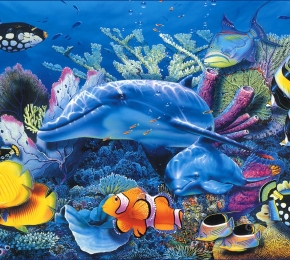 BERLIN, Nov 27 (Reuters) – Talks on forming a German coalition government were strained on Monday by an unlikely development: an EU vote on a weed-killer.
BERLIN, Nov 27 (Reuters) – Talks on forming a German coalition government were strained on Monday by an unlikely development: an EU vote on a weed-killer.
Chancellor Angela Merkel is expected to launch exploratory talks this week with the Social Democrats (SPD) on renewing their “grand coalition” after she failed to form a three-way alliance with the pro-business Free Democrats and the Greens.
But the centre-left SPD, which controls the Environment Ministry as junior partners of Merkel’s conservatives in the caretaker government, was enraged to learn that Germany voted in favour on Monday of using glyphosate for the next five years.
Germany backed the European Commission proposal to extend the use of the weed-killer after abstaining in previous meetings, defeating ally France in a very tight vote. The SPD party opposes the extension.
SPD parliamentary leader Andrea Nahles blamed the Christian Social Union (CSU), the Bavaria-based sister party of Merkel’s Christian Democrats, who control the Agriculture Ministry.
She suggested that CSU Agriculture Minister Christian Schmidt had made the decision unilaterally, which shows that Merkel had no control over her arch-conservative Bavarian allies.
A source at the chancellery told Reuters that Schmidt had taken https://www.cialissansordonnancefr24.com/cialis-minimum-dosage/ the decision alone. Usually the Agriculture and Environment Ministries agreed on a joint position before EU votes on banning substances.
“I see this as a massive breach of trust,” Nahles said. “We see this as a heavy burden. And I hope that this crash course will not continue.”
Environment Minister Barbara Hendricks of the SPD said she had informed Schmidt two hours before the vote that she was opposed to the extension.
Merkel on Monday pressed the SPD to renew the alliance with her conservatives, arguing that the European Union and the wider world urgently needed a stable German government in place.
More than two months after its Sept. 24 national election, Europe’s economic and political powerhouse is still without a government and officials say coalition talks may now properly begin only in the new year.
France’s President Emmanuel Macron, who was elected in May on a platform of pursuing deeper EU integration alongside Germany, had wanted a shorter extension and a rapid phasing out of the product which is a mainstay of farming across the continent.
(Reporting by Thorsten Severin and Andreas Rinke; Writing by Joseph Nasr; Editing by Alison Williams)